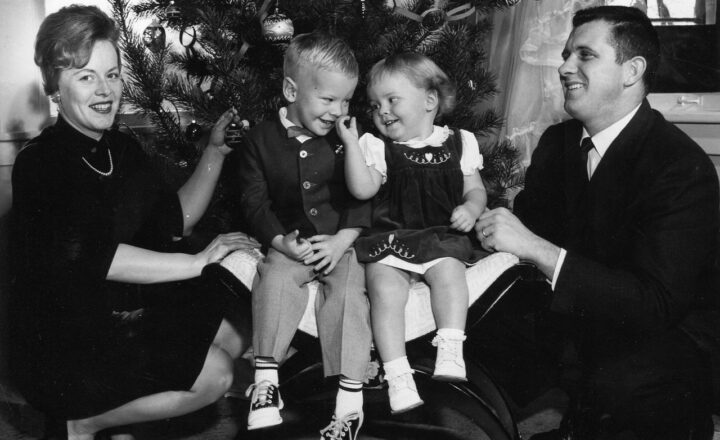How Religion and Spirituality Have Changed from Ancient to Modern Times
November 15, 2024

Throughout human history, the concepts of religion and spirituality have evolved significantly, shaping cultures, societies, and individual lives. From the earliest animistic beliefs to contemporary spiritual practices, the journey through millennia illustrates profound transformations in human thought and community dynamics.
1. Early Beliefs: Animism and Polytheism
In ancient times, early humans exhibited an innate desire to understand and explain the world around them. Animism emerged as one of the earliest forms of spirituality, where natural objects, animals, and sequences of events were believed to possess spiritual essence. This practice can be seen in hunter-gatherer societies around the globe.
As communities became more organized, complex systems of worship arose, often characterized by polytheism—the belief in multiple deities. Ancient civilizations such as the Egyptians, Greeks, and Romans established pantheons of gods, attributing human-like attributes and functions to these entities. Religion served to explain natural phenomena, ensure agricultural bounty, and justify the authority of rulers.
2. The Birth of Major World Religions
The rise of major world religions marked a significant shift in religious and spiritual practices. Around 1500 BCE, Hinduism began to take shape in the Indian subcontinent, laying the groundwork for integrative spiritual concepts like karma and dharma.
Approximately 600 BCE saw the emergence of Buddhism, founded by Siddhartha Gautama, which challenged prevailing doctrines and offered a path to enlightenment through personal experience rather than blind faith.
The spread of Judaism introduced monotheism, the belief in a singular, omnipotent God, which influenced subsequent Abrahamic faiths, including Christianity and Islam. These religions emphasized moral and ethical teachings, community cohesion, and organizational structure, leading to their extensive and enduring impact.
3. The Role of Religion in Society
Religion has historically served multifaceted roles within societies. It provided a framework for ethical living, laws, and social order. Religious institutions operated as centers for education, healthcare, and community support, fostering connection among diverse populations.
During the Middle Ages, the Church wielded immense power in Europe, dictating moral principles and cultural norms. Its influence was both a unifying and divisive force, leading to spiritual movements, reformations, and even conflicts stemming from ideological differences.
Today, while organized religion remains influential, its roles are shifting. The advent of secularism and pluralism has led to moments of disconnection and diversity of belief systems, prompting people to seek spirituality outside traditional religious frameworks.
4. The Age of Enlightenment and Scientific Revolution
The Enlightenment (17th-19th centuries) drastically changed perceptions of religion and spirituality. Known for its promotion of reason, empiricism, and individualism, this period challenged long-held religious doctrines. Thinkers like Voltaire and Rousseau critiqued religious institutions, advocating for freedom of thought and the separation of church and state.
Simultaneously, the Scientific Revolution began to reveal explanations for natural phenomena, leading many to embrace a more rational and skeptical stance towards religious narratives. This secularization paved the way for modern skepticism and philosophical questioning of the divine.
5. The Rise of Spirituality in the Modern Era
In recent decades, there has been a noticeable shift from organized religion to a broader quest for spirituality. Many individuals in contemporary society identify as spiritual but not religious, seeking personal meaning and connections without adherence to a structured belief system.
This evolving spirituality often draws from various traditions, incorporating elements from Eastern philosophies, indigenous practices, and New Age beliefs. Teachings on mindfulness, meditation, and holistic wellness have gained popularity, reflecting a desire for personal growth and a deeper connection with the universe.
The rise of technology and social media has also influenced modern spirituality, facilitating the exchange of ideas and practices across cultural and geographical boundaries. Virtual communities often share resources, support systems, and experiences, providing a platform for exploring one’s spirituality in an interconnected world.
6. Challenges and Opportunities in Modern Spirituality
The modern spiritual landscape is not without its challenges. Rising secularism and cultural diversity can lead to misunderstandings and conflicts. As traditional structures weaken, individuals often feel lost or disillusioned, seeking clarity in a rapidly changing world.
At the same time, opportunities abound in this new landscape. Many are embracing interfaith dialogue, fostering understanding and respect among different belief systems. The emphasis on personal experience allows for greater exploration and acceptance of different spiritual paths.
Furthermore, movements focusing on social justice and environmental sustainability are increasingly integrated with spiritual practices, highlighting the interconnectedness of individual well-being and the health of the planet as a whole.
Conclusion: Embracing Change in Spirituality and Religion
The transformation of religion and spirituality from ancient to modern times illustrates humanity’s evolving quest for meaning and connection. While ancient beliefs reflected attempts to comprehend the natural world, the rise of major religions structured ethical living and community cohesion.
In today’s society, spirituality continues to adapt and grow, driven by individual experience and the desire for deeper connections. By recognizing the changing landscapes of religion and spirituality, we can embrace a more inclusive understanding of what it means to seek meaning in our lives today. Ultimately, the journey of exploring spirituality offers a glimpse into our shared human experience, forging connections that transcend time and belief.







